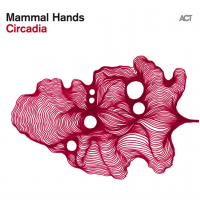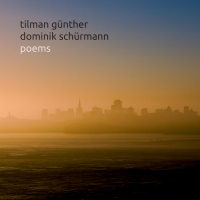Home » Jazz Articles » Album Review » Logan Richardson: AfroFuturism
Logan Richardson: AfroFuturism
Among the latest album's various conceptual references, either intended by Richardson or imagined by the listener, are flautist Nicole Mitchell's Afrofuturist composing paradigm, her fellow AACMer alto saxophonist Matana Roberts' Coin Coin series (Constellation, 2011-2019) and, on around half the tracks, the epic scale of tenor saxophonist Kamasi Washington's orchestrations. Richardson parallels Roberts' use of sung and spoken-word field and archive recordings with sound bites from his great-grandmother, his mother, the rapper Busta Rhymes and the vibraphonist Stefon Harris. He touches on Washington not by assembling a band as big as the one required to perform Richard Wagner's Der Ring des Nibelungen, but by overdubbing members of his octet. Add a simulated string section, Björk / Kate Bush's lovechild, and echoes of Radiohead, trap and prog rock, and you are still skimming the post-modern surface.
Much of AfroFuturism's sound is big, like Phil Spector's would have been big if he'd produced a Charles Mingus album with 2021 technology. But thoughtful track-sequencing and variations in dynamics and intensity give the album nuance without sacrificing cohesion. The less epically scaled material includes "Farewell Goodbye," an elegy sung by Laura Taglialatela (who also created the album artwork) for the late pianist McCoy Tyner, which is introduced by Richardson's great-grandmother's acapella singing, and "Black Wall Street," on which Ezgi Karakus' string section combines with Richardson's saxophone to create a respite of neo-acoustic sound. The title references the 1921 Tulsa race riot, in which a murderous white mob, enabled by the police and city authorities, burnt the eponymous black neighbourhood to the ground.
AfroFuturism is an album crying out to be the soundtrack for a movie. Ideally this would be a visual tone-poem along the lines of director Godfrey Reggio's collaboration with Philip Glass on Koyaanisqatsi, for it needs no narrative device to tell its story. Meanwhile, Richardson is rattling the jazz cage. Lord knows what the conformists will make of it all. But an earlier Kansas City-born alto saxophonist might well have applauded.
Track Listing
Say My Name; The Birth Of Us; Awaken; Sunrays; For Alto; Light; Trap; Grandma; Farewell Goodbye; Black Wall Street; Photocopy; Round Up; According To You; Praise Song.
Personnel
Logan Richardson
saxophone, altoIgor Osypov
guitar, electricPeter Schlamb
vibraphoneDominique Sanders
bassRyan J. Lee
drumsCorey Fonville
drumsEzgi Karakus
celloLaura Taglialatela
vocalsAdditional Instrumentation
Logan Richardson: alto saxophone, piano, keyboards, synths; Igor Osypov: electric and acoustic guitars; Peter Schlamb: keyboards, vibraphone, key bass ; Dominique Sanders: bass, key bass; Ryan J. Lee: drums, bass; Corey Fonville: drums; Ezgi Karakus: strings; Laura Taglialatela: vocals.
Album information
Title: AfroFuturism | Year Released: 2021 | Record Label: WAX Industry / Whirlwind Recordings
Tags
PREVIOUS / NEXT
Logan Richardson Concerts
Support All About Jazz
 All About Jazz has been a pillar of jazz since 1995, championing it as an art form and, more importantly, supporting the musicians who make it. Our enduring commitment has made "AAJ" one of the most culturally important websites of its kind, read by hundreds of thousands of fans, musicians and industry figures every month.
All About Jazz has been a pillar of jazz since 1995, championing it as an art form and, more importantly, supporting the musicians who make it. Our enduring commitment has made "AAJ" one of the most culturally important websites of its kind, read by hundreds of thousands of fans, musicians and industry figures every month.




.jpg)



















